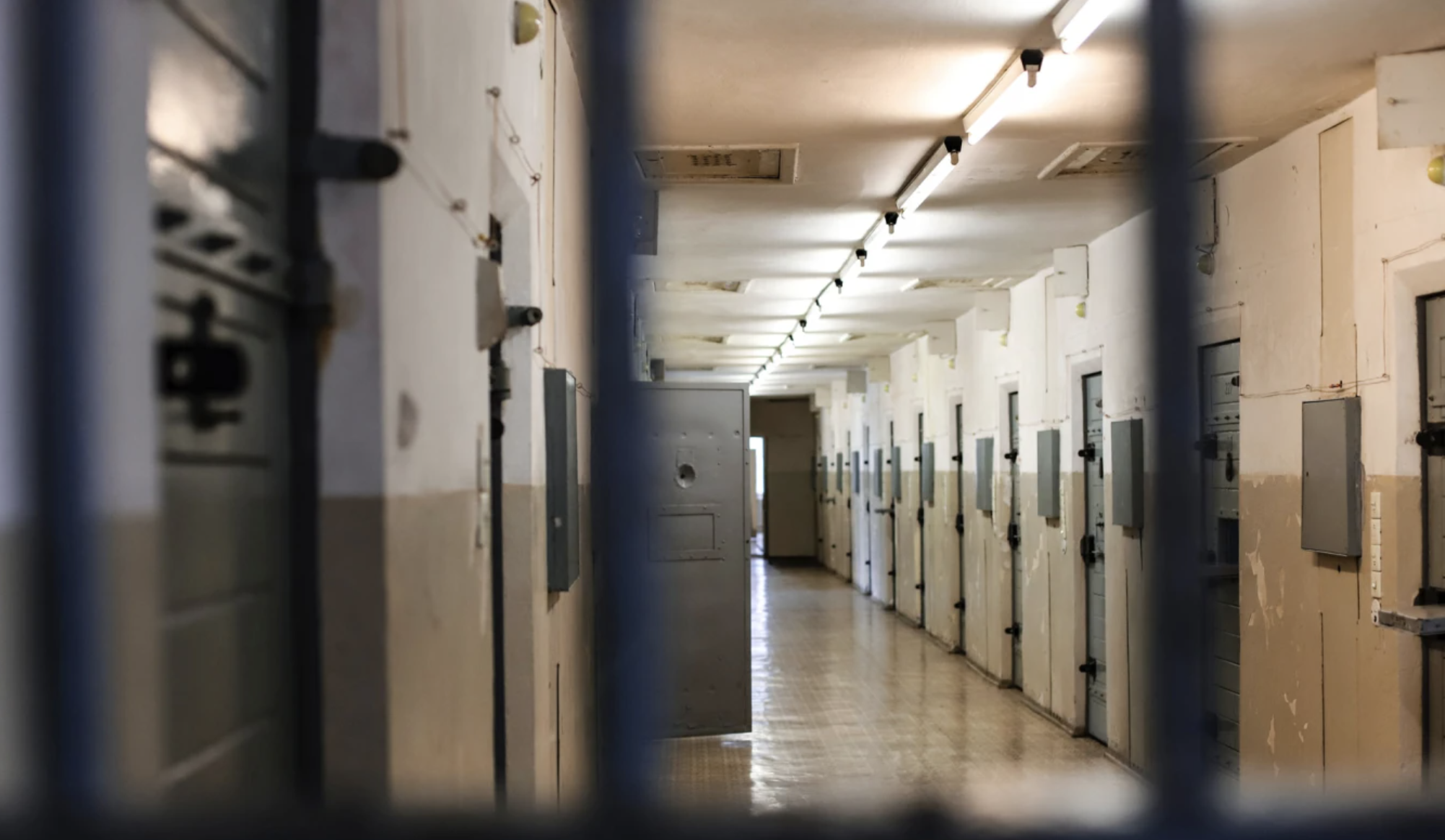Wesley*, 51, has been incarcerated in Georgia Department of Corrections (GDC) prisons for more than half his life. Every morning he wakes up at 4:30 am, in anticipation of corrections officers (COs) shouting at him to get up at 5 am. They haven’t done so since early 2020.
After decades of being forced to eat breakfast at 5:15 am or not at all, the fact that it’s now sometime after 6 am leaves Wesley’s stomach in knots. Lunch these days is served at 10:45 am, dinner at 2:30 pm, realities he mostly tries not to think about.
For those of us who’ve spent decades in prison—often our whole adult lives—our circadian rhythms have long since been set by the state. We knew three hours had passed when it was time for head counts, conducted at monastic hours of prayer: midnight, 3 am, 6 am, 9 am, noon, 3 pm, 6 pm, 9 pm. Census counts, which are separate, were 8 am, 10 am, 1pm, and 4 pm. Laundry went out at 6 am was returned at 4 pm. TVs came on at 5 am and turned off at 7 am; then back on at 5 pm and back off at 11 pm. Or 1 am, if it was a holiday or weekend.
Then the COVID-19 pandemic hit. COs quit en masse. Schedules were abandoned. And three years later, nothing’s really replaced them. It’s left the old-timers adrift, unable to get our bearings or process how we’re supposed to pass the time.
We hate the rigid schedules, but we also cling to them. After a few decades of institutionalization being grafted over where free will used to be, these routines bring us meaning and order. If they don’t mark the passage of time, nothing does.
“Everywhere I go the clocks have a different time displayed,” Ward*, incarcerated for nearly four decades, told Filter. “For so many years it was important to be early, as on time was late and late was punishable. Now, I can’t tell if I’m late or early, and have difficulty accepting that it no longer matters.”
“What I am experiencing now,” Ward said, “is what I feared freedom would feel like.”
“The pandemic killed ‘official’ order inside prisons,” Wilkie*, 60, told Filter. “The abandonment of time and place has disoriented the institutionalized … It is chaos.”
In the absence of supervision, many of us continue to go to our daily work assignments. Trash is picked up, meals cooked, trucks unloaded, warehouse orders placed, by thousands upon thousands of people going through the motions of forced labor because they’re at a loss for what else to do.
“What I am experiencing now,” Ward said, “is what I feared freedom would feel like. Only, not the fear of failing to be a ‘successful’ parolee. Nor the fear of returning to prison, to start over again at the bottom of all the ladders. Now, without the schedule … the ’safe at home base’ assurance is gone.”
Group movements, when doors and gates are unlocked for 15-minute intervals so prisoners can shuffle from their assigned location to their next assigned location, no longer exist. Before COVID, if you needed to go from, say, your cell to your job, you had to do it at 7:45 am. If you missed movement, you had to wait until 9:45 am. Then 11:45 am; 12:45 pm; 3:45 pm; and 5:45 pm.
“There’s no structure to anything. It’s maddening.”
These days, head counts are arbitrary occurrences that a few COs do when needed for the sake of appearances. Prisoners and supervisors alike show up to work at random times that correspond to no known schedule, and leave the same way.
“The doors and interior gates stay unlocked. The TVs stay on 24/7. Laundry goes out whenever or not at all, and returned to the living unit whenever or not at all,” Wesley told Filter. “There’s no structure to anything. It’s maddening.”
Wesley tries to maintain a routine as best he can. He still gets up at 4:30 em each morning, to drink a cup of coffee and watch BBC until 5:30 am. At 7:45 am he goes out to the yard to watch the migrating flocks of geese; they always eat breakfast at the same time every day.
Around noon he’ll turn to some art projects, and hopefully exhaust himself trying to make the day pass. At midnight he’ll go back to bed.
Some of the old-timers cope with drugs or alcohol, or smoking as many cigarettes as they can afford. Some didn’t even smoke before the pandemic, but now have frayed nerves sufficient to have picked up the habit later in life. Some have reputations that protected them during periods of disorientation; some don’t. Many become statistics, one data point among hundreds showing the rates of murders and suicides climbing higher.
“My catastrophic thinking sees only the historical worst of outcomes for the prisoners,” Wilkie said. But “the atmosphere is one of, ‘It’s not going to matter very much longer anyway.’”
Photograph via Iowa Department of Corrections
*Names changed to protect sources.





Show Comments